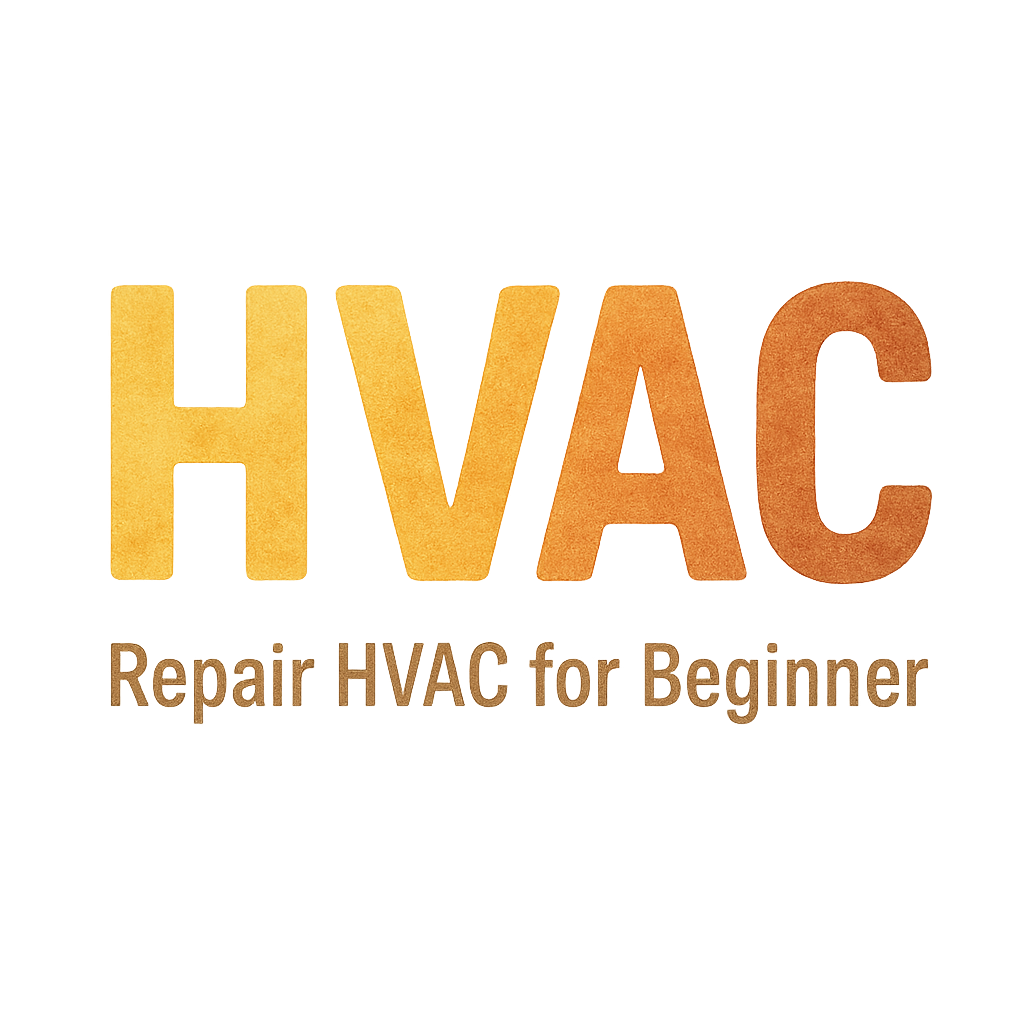Introduction
Have you noticed a bad smell coming from your HVAC system? It can be frustrating when your heating, ventilation, and air conditioning unit starts emitting unpleasant odors, but you’re not alone. Whether it’s a musty, chemical, or rotten scent, each smell points to a different issue within the system. In this article, we’ll explore the top 5 reasons your HVAC unit smells bad and provide solutions to fix each one. If you’re experiencing odors, it’s essential to identify the root cause to ensure a comfortable, healthy home environment.
For more general tips on keeping your HVAC system in top shape, check out our guide on HVAC Basics for Beginners.

What is an HVAC System?
An HVAC system is an essential component of your home’s comfort. HVAC stands for Heating, Ventilation, and Air Conditioning. It’s responsible for regulating your indoor temperature, humidity, and air quality. While most people use their HVAC system daily, it’s easy to overlook its maintenance. A dirty or neglected HVAC system can lead to unpleasant odors, affecting the air you breathe.
To better understand how to take care of your HVAC unit, take a look at our HVAC Maintenance and Cleaning page.
Why Do HVAC Units Smell Bad?
There are various reasons your HVAC system might start emitting unpleasant smells. Whether it’s mold, dirty filters, or something more serious, identifying the issue quickly is important. Let’s dive into the most common causes of bad HVAC odors and how to solve them.
Reason 1: Mold and Mildew Growth
One of the most common culprits behind a bad-smelling HVAC system is mold and mildew. These fungi thrive in warm, damp environments—exactly the conditions created in many HVAC systems. Mold and mildew can form inside the ducts or on the evaporator coil, creating a musty, damp odor that spreads throughout your home.
How to Fix Mold and Mildew Smells
- Turn off the HVAC system – Always start by switching off the power to avoid electrical hazards.
- Inspect the ducts and evaporator coil – Check for visible mold growth, water damage, or excessive moisture.
- Clean or replace the air filter – Mold spores tend to cling to dirty filters. Replacing or cleaning the filter can help eliminate spores.
- Use a mold cleaner – Specialized mold-removal cleaners can help scrub the inside of ducts and coils.
- Fix moisture issues – If you find leaks or areas where moisture is pooling, get them fixed immediately.
If the mold problem persists or if you notice any health symptoms, it’s best to reach out to a professional HVAC technician.
For more details on preventing mold growth in your HVAC system, visit HVAC System Diagnosis.
Reason 2: Dirty Air Filters
Air filters are the first line of defense in your HVAC system, trapping dust, dirt, and debris. Over time, these filters become clogged and less effective at purifying the air. A dirty air filter can start emitting musty smells as it traps bacteria, mold spores, and dust. This is a common issue in homes with pets or high dust levels.
How to Fix Dirty Air Filter Smells
- Turn off the HVAC system – Always ensure the system is off before you inspect or replace the air filter.
- Locate and check the filter – Most filters are located near the air handler or in the return air duct. Inspect it for dirt and dust buildup.
- Replace or clean the filter – If the filter is dirty, replace it with a new one. Opt for high-efficiency filters for improved air quality.
- Vacuum around the filter area – Ensure that dust and debris around the filter slot are cleaned.
- Schedule regular filter changes – Change filters every 1-3 months to keep the system running smoothly.
By regularly maintaining your filters, you’ll keep your HVAC system odor-free and improve overall air quality. Check out our beginner tips on HVAC maintenance for more guidance.
Reason 3: Refrigerant Leaks
Refrigerant is the key element in the cooling process of your HVAC system. A refrigerant leak can cause not only poor performance but also the release of strange odors, often described as a chemical or musty smell. If you notice this kind of smell, it’s a good idea to have a technician inspect the system, as refrigerant leaks can be harmful to both your HVAC unit and your health.
How to Fix Refrigerant Leaks
- Turn off the HVAC unit – Safety is always the priority. Turn off the unit before inspecting.
- Look for signs of leakage – If you notice oily spots or ice buildup around the refrigerant lines, it may indicate a leak.
- Call a professional technician – Fixing refrigerant leaks requires specialized tools and expertise. Don’t attempt this yourself.
- Check the air quality – If you notice a chemical-like smell, ventilate the area immediately and contact a technician.
For more detailed troubleshooting steps for refrigerant leaks, explore our Troubleshooting HVAC Systems page.
Reason 4: Dead Animals in Vents
If you’ve ever had a rodent or small animal crawl into your HVAC ducts, you may be familiar with the strong, unpleasant odor that comes from a dead animal. These smells can linger and spread throughout the house, causing discomfort and potentially posing a health risk if the carcass isn’t removed quickly.
How to Fix Dead Animal Smells
- Turn off the HVAC system – Start by turning off the system to stop the spread of odors through the ducts.
- Search for the source – Carefully check the ducts for any signs of a dead animal.
- Remove the carcass – If the animal is within reach, remove it with gloves and proper precautions.
- Clean the ducts – Use disinfectant and odor neutralizers to clean the ducts where the carcass was located.
- Call a professional – If the animal is deep in the ducts, it’s best to call an HVAC professional to handle the removal.
For help with the cleanup process, refer to our HVAC Troubleshooting and Repair page.
Reason 5: Clogged Drain Lines
The condensate drain line removes excess moisture that builds up during the cooling process. If this line becomes clogged, it can cause standing water to accumulate in your HVAC system. This stagnant water can lead to a musty, sour smell, which will only worsen over time if left unaddressed.
How to Fix Clogged Drain Lines
- Turn off the HVAC unit – Safety first. Always turn off the unit before you inspect it.
- Locate the drain line – The condensate drain is usually found near the outdoor unit or air handler.
- Use a vacuum – Clear any debris or standing water from the drain line with a wet/dry vacuum.
- Flush the line – Pour a small amount of vinegar or a drain line cleaner to prevent future clogs.
- Check the drain pan – Make sure the pan is clean and dry to avoid any mold or bacteria buildup.
For detailed maintenance tips, explore our Checklist for HVAC Maintenance.
When to Call a Professional
While many of these issues can be addressed by homeowners, some may require the expertise of a professional HVAC technician. If you notice persistent smells after trying the fixes above, or if you’re unable to identify the source, it’s time to call a professional for help.
Preventative Measures for Odor-Free HVAC
Regular maintenance is key to preventing odors in your HVAC system. Here are a few tips to keep your system running efficiently:
- Change your air filters regularly (every 1-3 months).
- Clean your ducts annually to prevent mold and dust buildup.
- Inspect and clean the condensate drain line.
- Keep the area around your HVAC unit free of debris.
- Schedule annual HVAC maintenance with a professional technician.
For more in-depth maintenance advice, visit Protective Equipment for HVAC.
Conclusion
Bad smells from your HVAC system are more than just a nuisance—they often point to underlying issues that need immediate attention. Whether it’s mold, a dirty filter, or a clogged drain, taking quick action can restore the comfort and health of your home. Regular maintenance is essential to keep your HVAC unit running smoothly and to prevent future odors.
FAQs
- Why does my HVAC unit smell like rotten eggs?
- A rotten egg smell can indicate a natural gas leak, which is dangerous. Turn off your system immediately and contact a professional.
- Can mold in my HVAC system affect my health?
- Yes, mold can cause respiratory issues, especially for individuals with allergies or asthma. It’s crucial to remove mold as soon as possible.
- How often should I replace the air filter in my HVAC system?
- Air filters should be replaced every 1-3 months, depending on usage and filter type.
- How can I tell if there’s a dead animal in my HVAC ducts?
- If you notice a foul, decaying odor, you might have a dead animal in the ducts. Call a professional to remove it safely.
- Can I fix a refrigerant leak myself?
- Refrigerant leaks require specialized knowledge and tools. Always call a professional to handle refrigerant repairs.
- What should I do if my HVAC drain line is clogged?
- Use a wet/dry vacuum to clear debris from the line, then flush it with vinegar or a drain cleaner to prevent future clogs.
- How can I prevent odors from returning to my HVAC system?
- Regularly change filters, clean ducts, inspect drain lines, and schedule professional maintenance to keep odors at bay.


